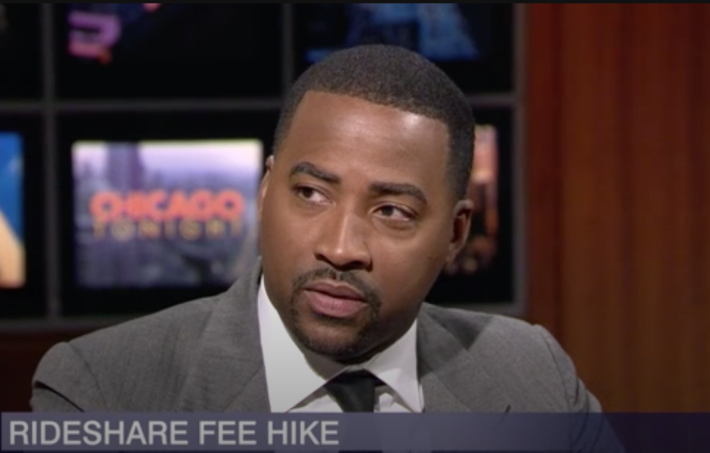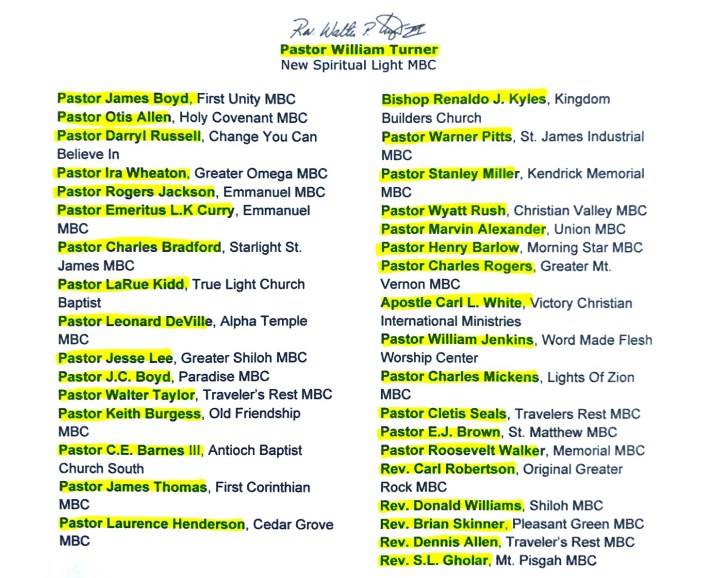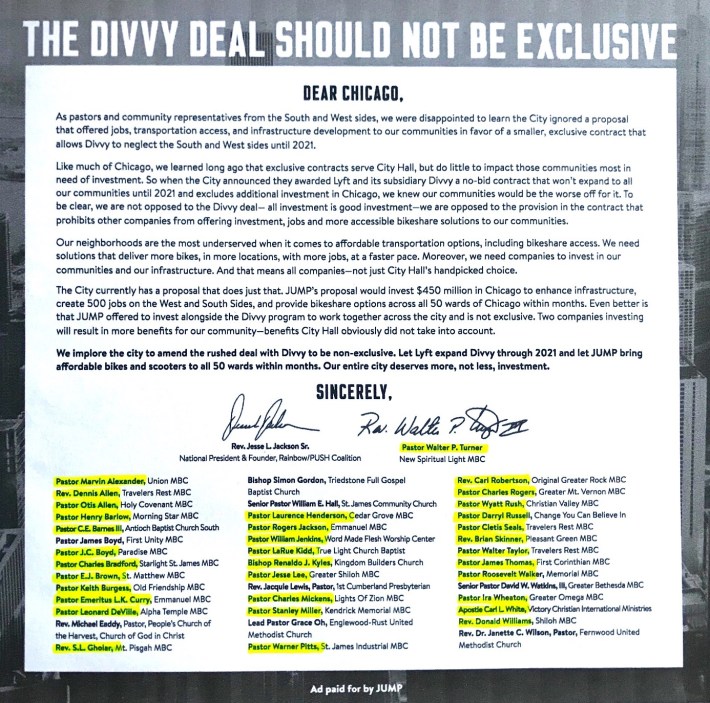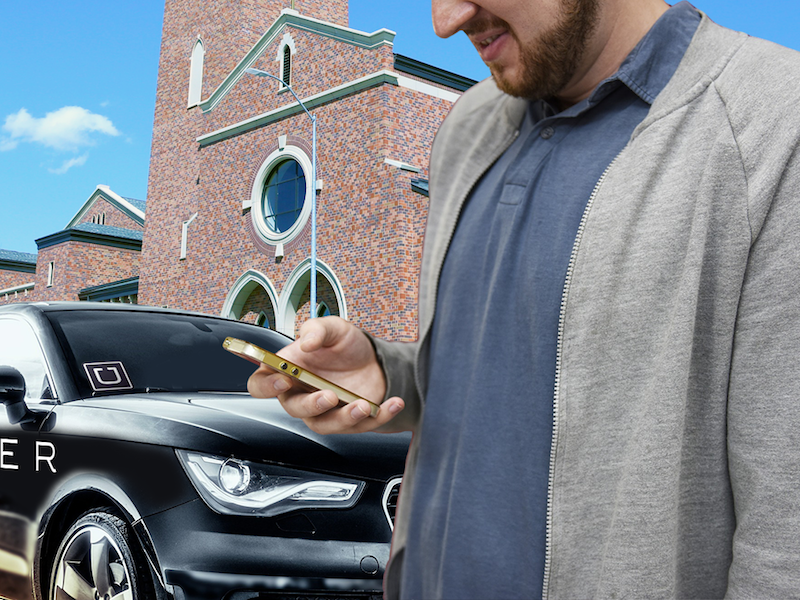Before we move forward here, let's take a moment to acknowledge the importance of Chicago's hundreds of houses of worship, particularly churches in Black and Latino neighborhoods. They play a key role in building community and providing social services, and they have historically stepped in when government institutions failed to meet the basic needs of our city's least-fortunate residents. That includes everything from operating soup kitchens to providing mental health support through the uplifting experience of communal worship. It's important for sustainable transportation advocates to keep that in mind when occasional church-related issues arise, such as the illegal Sunday parking in bike lanes that infuriates some cyclists.
That said, there are reasons to be skeptical of the relationship between Uber and the 35 African-American ministers who have signed on as allies in the company's fight against Mayor Lori Lightfoot's fair ride-hail tax proposal. The clergy members have been doing boots-on-the-ground work for the ride-hail giant this month, showing up to speak at City Hall hearings and protests, and doing TV spots and newspaper interviews. The question is, what are the pastors, reverends, and bishops getting in exchange for doing all that labor?

Lightfoot sparked controversy Wednesday when she claimed Uber is “paying off Black ministers by offering them $54 million” to speak out against the new fees. The company and the ministers denied the allegation, with Uber saying that the mayor confused the $54 million number with the figure the company said an earlier counterproposal would raise for the city. (This week the company released another alternative plan it claims would generate $61 million, although, with generally much lower tax rates, that number appears to be a mirage, and the proposal would do little to fight congestion.)
On Thursday Lightfoot told Chicago Tribune reporter John Byrne she hadn't been accusing Uber of literally bribing the ministers. Rather, she said, she'd been talking about community investments the clergy members were promised for their neighborhoods out of the hypothetical $54 million Uber said its earlier counterproposal would generate. “In trying to divide and conquer, they offered up potential quote-unquote investments,” the mayor said.
Lightfoot's office released a statement saying, “Uber... is cynically trying to use these communities and their leaders as pawns to further the company’s own interests. These stalwart and trusted faith leaders see this for what it is." On Wednesday, Lightfoot had said "As we walked these ministers through the realities of what’s actually at stake here, I think they realized that, frankly, they’ve been hoodwinked.”

The letter rightly noted that ride-hail has been helpful in bridging gaps in the transit network on the South and West sides and for providing service in neighborhoods that traditional taxi drivers have often ignored. But it also made some misleading and inaccurate statements.
"Your proposal to increase fees by nearly 80 percent for trips that go nowhere near downtown puts all of the progress that’s been made to give our communities a reliable transportation option at risk," the letter read. "Your proposal will not impact well-off communities like Lincoln Park, but instead will place an undue burden on Chicago’s lowest income residents."
In reality, most trips hailed on the South and West side are currently shared Uber Pool and Lyft Line rides in the neighborhoods, which would see a 10 percent tax decrease under Lightfoot's plan. Meanwhile, about 70 percent of rides hailed on the North Side and downtown are private trips, which would see a tax hike. Therefore well-off communities like Lincoln Park will be generating the vast majority of the new revenue, minimizing the tax burden on low-income residents. For a full explanation of why the mayor's plan is equitable, read this blog post by Elizabeth Irvin from the Center For Neighborhood Technology.

It's also worth noting that every single one of these 35 ministers was promoting similarly bogus talking points about equity from Uber last spring, when the company and its subsidiary JUMP bikes were trying to keep the city from signing a deal with Lyft for citywide expansion of the Divvy bike-share system. That campaign by Uber included astroturfing strategies like purchasing anti-Divvy coverage in the Black-focused news, arts, and culture website the TRiiBE.
On April 4 Uber and JUMP ran a full page ad in the Chicago Sun-Times with endorsements their anti-Divvy position from 43 Black faith leaders, including civil rights icon Jesse Jackson. All of the 35 ministers now promoting Uber's position against Lightfoot's plan also signed the Sun-Times letter.
It's difficult to track down exactly what, if any, financial relationship there is between Uber and these clergy members, since churches are religious institutions that don't have to file IRS Form 990 nonprofit financial disclosure forms. But it's reasonable to be a bit suspicious about the fact that last spring those 35 ministers suddenly took a keen interest in bike-share equity on Uber's behalf, and now they're talking the exact same way about ride-hail equity.






